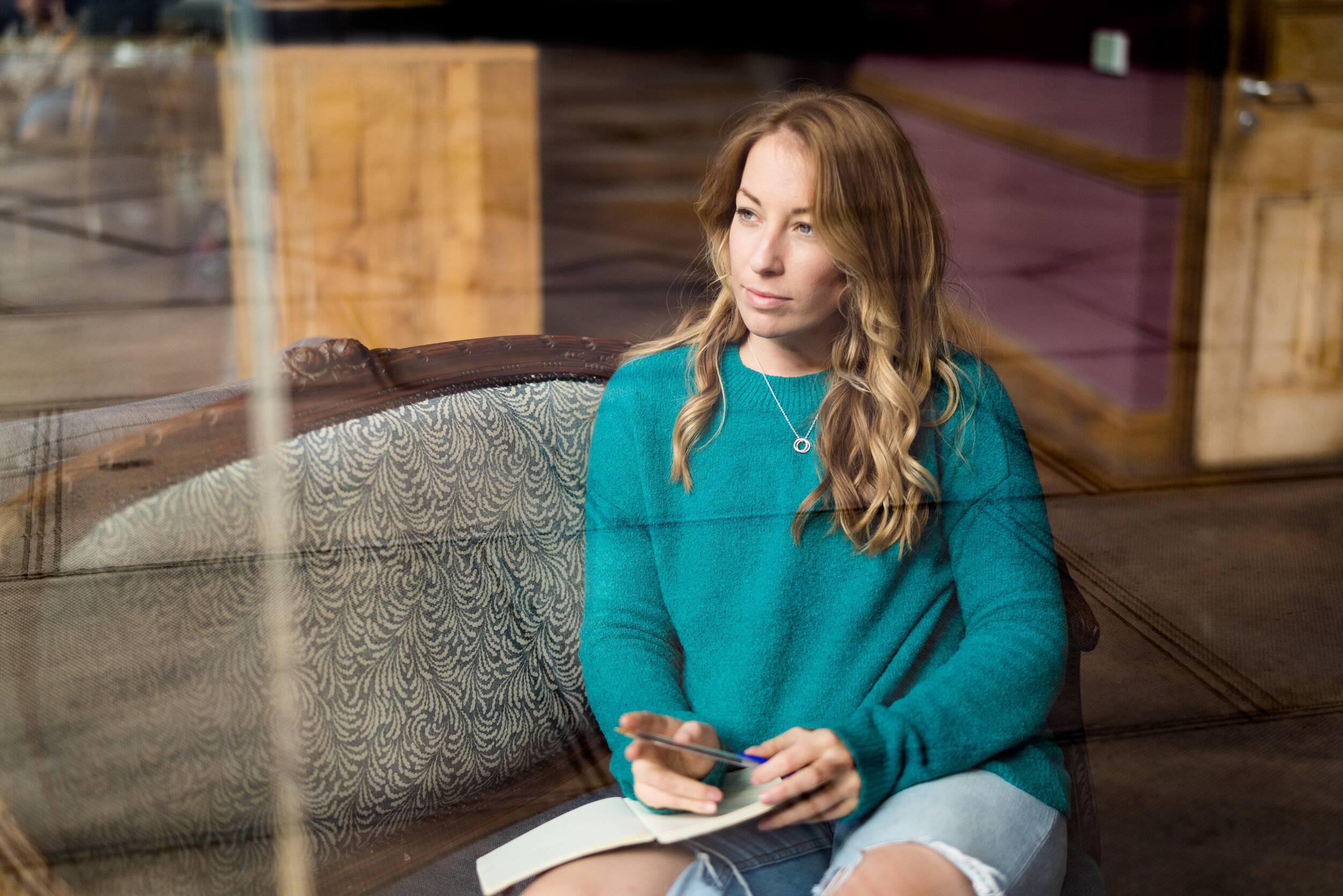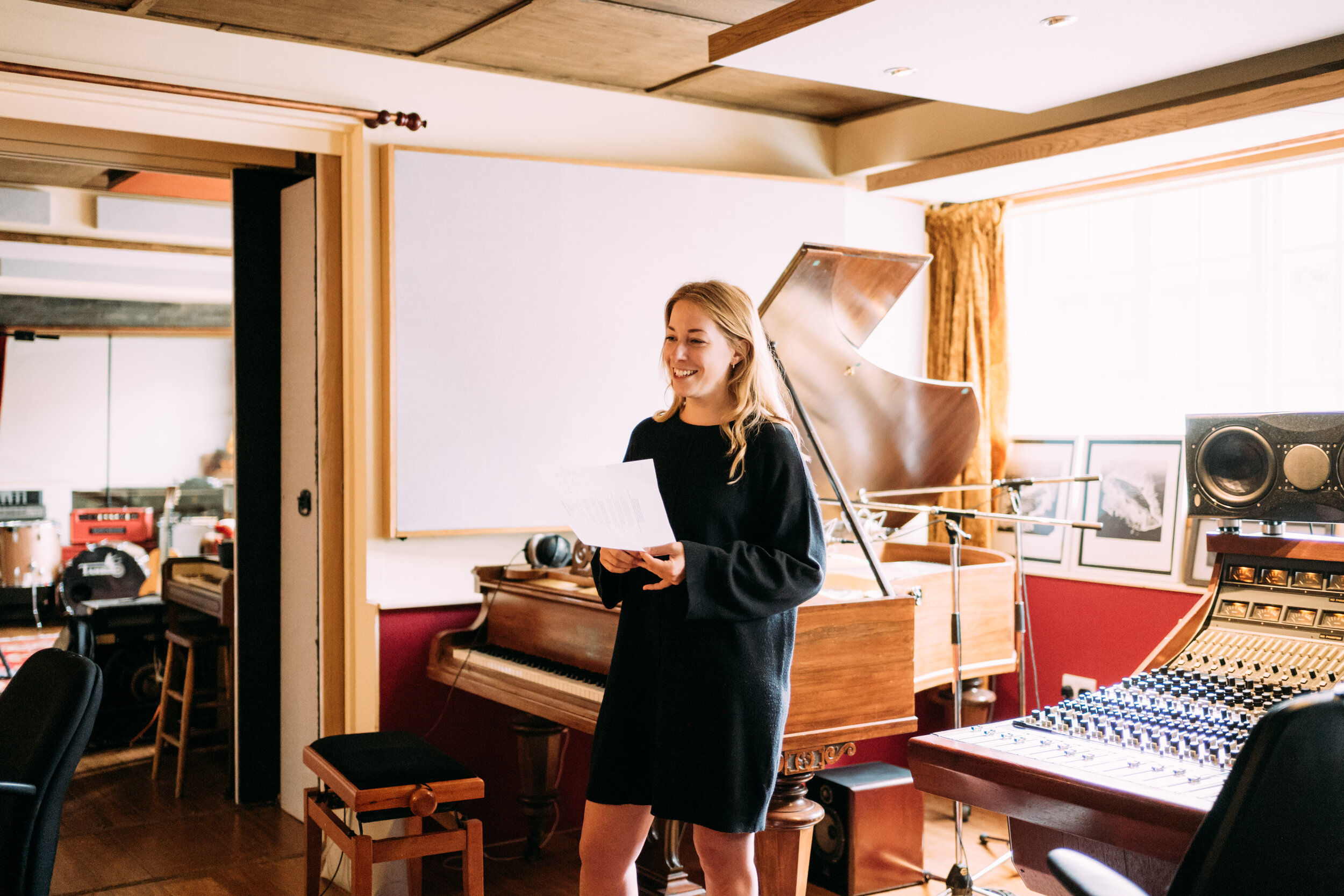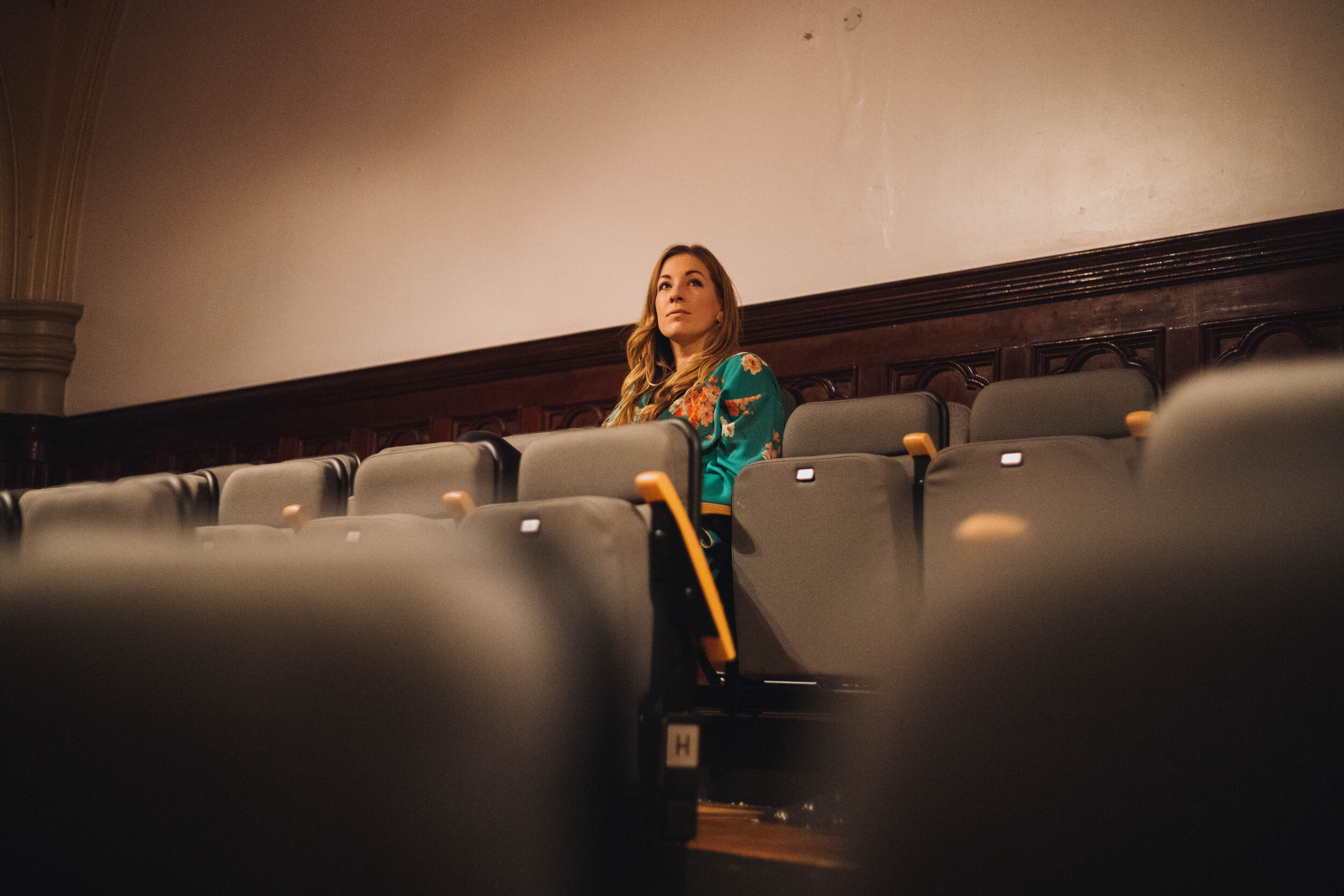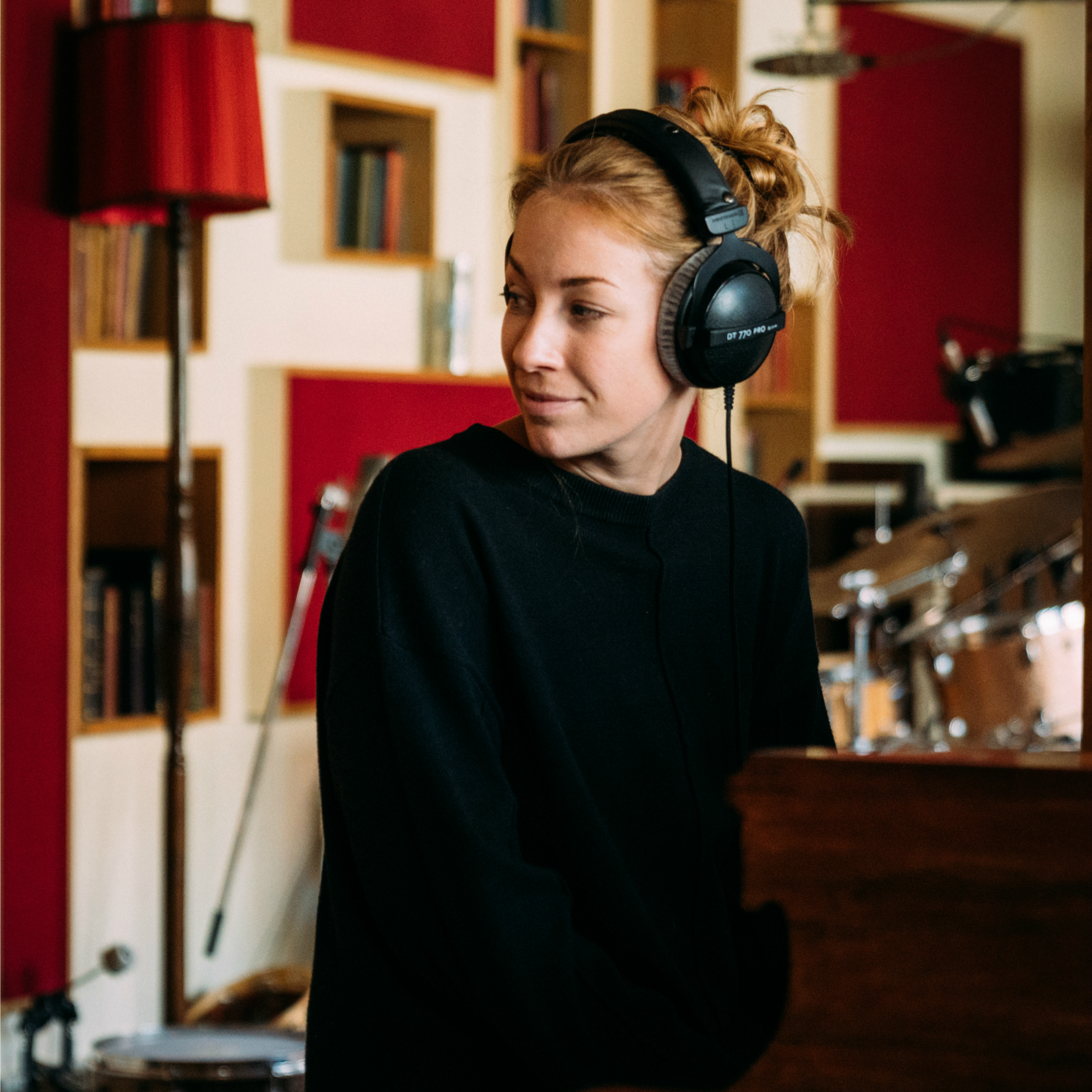FAC Insights: Investing in artists’ mental wellbeing makes commercial sense by Lauren Rozwadowski
FAC Insights is a forum for us to showcase and share long form pieces looking at various parts of the music industry and the society that shapes it. There are no real boundaries beyond that and pieces take the form of videos, interviews, discussions, articles and more.
Lauren Rozwadowski (creatively known as Lauren Ray) is a life and success coach and a practitioner in neuro-linguistic programming, emotional freedom techniques, TIME techniques and hypnotherapy and is the founder of Chord Commerce. Combining her training, industry knowledge and experience Lauren helps music creatives (and also women in music) discover their confident, empowered and commercial mindsets to better navigate the music business and take ownership of the vision for their lives.
Duty Of Care
There have been countless studies that show that happy employees increases productivity and ultimately the financial bottom line. Should the music industry prioritise the mental wellbeing and overall happiness of artists in the same way they do for their employees?
In 2016, Help Musicians UK commissioned the University of Westminster and MusicTank to undertake the largest known study into mental health and the music industry titled ‘Can Music Make You Sick?’. What is pointed out in phase two of the research is that ‘the concept of duty of care is often reliant on being able to show a direct link between the harm and those who might be accountable, but in a world of blurred boundaries, blurred definitions and blurred relationships, who is responsible is often very hard to identify or at least single out’.
I feel that considering the entire music industry is reliant on the creativity, mental and physical health of artists and other music creatives that we should all be accountable; we all have a duty of care.
Today we have mental health hotlines and access to therapists, however we need to invest in preventative care. Let’s not wait until a problem arises, for example a cancelled tour, before we suggest the artist seeks help.
A Unique Perspective
I propose that we invest in preventative care because it’s the compassionate thing to do for a fellow team member and fellow human being. But let’s be commercial about this, because this is the most effective way to drive change. Let’s invest in artists’ preventative care for the industry’s bottom line; let’s talk about commercials and ROI (Return On Investment).
I have a unique perspective from working on both sides of the industry, which allows me to see the opportunity. I am a recording artist and songwriter. I independently released my debut album in 2016. I was then signed to a small record label for a couple of years, then became independent again and released my second album in 2020. I have extensively toured the UK and Europe supporting artists Rebecca Ferguson, Lucy Spraggan, Paul Carrack, Anastacia and other incredible artists. At the same time I work for Warner Music UK and prior to that I worked at PPL. I am also on the Beat Board of the FAC.
Evidence
During my 10 years working in the industry I have often wondered how much money is ‘lost’ or ‘wasted’ every year as a direct result of a lack of preventative artist care. Whenever business partnership expectations haven't been clearly communicated or when an artists’ low confidence means they’re unable to set boundaries and protect their mental or physical health. How many tours have been cancelled, PR and marketing efforts scrapped and postponed that could have been avoided?
How many creative talents are stifled and unfulfilled due to limiting beliefs, negative self-talk or the fear of being taken advantage of. How many artists suffer from acute stress and anxiety due to unmanaged finances and a lack of business acumen and therefore quit the industry feeling depressed and disillusioned, leaving accounts unrecouped and creativity squandered?
My attempt to demonstrate this with empirical evidence was futile as this specific data is not accessible. My assumption from looking at the number of signings across the industry each year, the number of artists’ dropped by management or labels, the number of times I see cancelled shows, tours or events due to mental or physical illness, is that we are talking billions in just the UK alone.
A study by Deloitte estimated that in 2017 poor mental health among employees costs UK employers £42bn – £45bn each year. This is made up of absence costs of around £7bn, presenteeism costs ranging from about £27bn to £29bn and turnover costs of around £9bn.
The study then looked at which type of intervention provided the highest ROI for employers. Their study showed that providing earlier interventions and support along with organisation culture awareness had a higher ROI than only providing reactive mental health support. They determined that active culture change showed a 6:1 ROI, proactive preventative support and training such as mindset, health and career coaching had 5:1 ROI, whereas reactive mental health support such as 1-2-1 therapy was 3:1.
Preventative Care
When I was researching my concerns earlier this year I noted that artists and music creatives were all saying they wanted support from someone qualified who also understood the music industry. An interview with Nina Nesbit on ‘Elevate Music Podcast’ confirmed to me that artists feel that it is difficult to talk to someone who has no understanding of the music business and that talking to people that understand the aspirations and challenges of being a musician is very important. Nina described how she would have benefited from this particular kind of specific support at the start of her career when she was first signed and then again when she was ‘dropped’.
The Opportunity
The music industry should actively implement culture change and tailored preventative care alongside access to the therapy and helplines that already exist.
Where does this work start? Right at the beginning of an artists’ career. Let’s ensure we are supporting artists’ to develop the commercial mindsets, confidence, business acumen, self-esteem and resilience for what challenges this industry brings. Artists should have a vision for their life and career and then select business partners that support their goals.
Then when a significant stage of transition occurs such as when a label or management contract ends abruptly. Let’s ensure that we provide clear communication as to why a business partnership has ended and provide access to aftercare to help them navigate the transition in a healthier way.
As artists become more successful we should also be looking to ensure that they have wholeness in their lives and a work-life balance just like anyone else in the industry. Artists should be actively prioritising their finances for long term security and their personal relationships (which, let’s be honest, is the fuel for the best creativity) just as much as their creative careers.
This culture change will significantly reduce the risk of mental health issues, burn-out and anxiety for artists. It will therefore reduce the number of cancelled shows, tours and PR activities. Confident and empowered artists will be stronger business partners for the industry which will increase productivity and ROI. Ensuring artists have more confidence and a higher self-esteem will allow them to be more creative without fear and limiting beliefs.
The Goal
My goal here is to demonstrate how preventative support such as coaching and earlier access to therapy can increase the industry's ROI. It is my goal to show that investing in artists’ mental wellbeing makes commercial sense. Let’s work together and build closer partnerships between all sectors of the industry to increase overall well being. Let’s invest in preventative care and artist personal development because all evidence suggests it’s the right thing to do for our peers and ultimately for the industry.
www.mindbeforemusic.com
@mindbeforemusic
To all FAC PRO members, Lauren offers a 15% discount code for her membership community using code PROFAC2024





